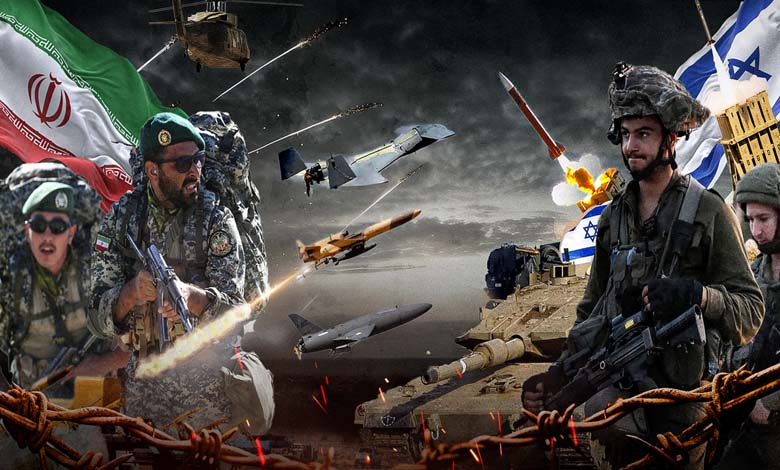Arrow Missiles Running Out: A Critical Gap Threatening Israel’s Ability to Repel Iranian Attacks

Washington has already taken urgent steps to bolster Israel’s land, sea, and air defenses, in an effort to compensate for the expected shortfall in the country’s multilayered defense system.
-
Israel Vows Retaliation as Iran Issues Threats — Red Lines Crossed and Strikes to Continue
-
Israel Launches Massive Strike on Nuclear and Missile Facilities in Iran
A U.S. official told The Wall Street Journal that the missiles of Israel’s “Arrow” air defense system—designed to intercept Iranian ballistic missiles—are “on the verge of running out.” This alarming development could significantly shift the military balance in the ongoing conflict between Israel and Iran.
The anonymous official warned that this shortage has become a serious concern for Washington, which has moved swiftly to reinforce Israel’s defensive capabilities across all domains. He added that even the interceptor missiles held in U.S. stockpiles are at risk of depletion.
-
Is an Attack Imminent? US Newspaper Reveals Israeli and Iranian Preparations
-
In Iran’s Eid Sermon: The U.S. and Israel Present with Warnings
Israel’s airspace is defended by a multilayered system made up of four main components: the Iron Dome for short-range missiles (4–70 km), David’s Sling for medium-range threats (40–300 km), Arrow 2 for intercepting missiles within the atmosphere (up to 500 km), and Arrow 3—the latest and most advanced—for intercepting ballistic missiles outside the atmosphere (up to 2400 km).
Arrow 2 and Arrow 3 form the backbone of Israel’s strategic defense against Iranian ballistic missiles—considered among Tehran’s most powerful tools of deterrence and retaliation. Arrow 2 has been in operation since 2000, while Arrow 3 was deployed in 2017 as part of close defense cooperation between Tel Aviv and Washington.
-
“Surprise” in Israeli Attack on Iran: Advance Warning of Date and Targets?
-
Details of Iran’s “Recruitment” of an Israeli and His Girlfriend to Carry Out an “Assassination” Operation
Amid intensified Iranian retaliation through successive waves of missiles and drones, military assessments suggest the Arrow system has been heavily drained since the outbreak of hostilities, and is now nearing exhaustion—leaving Israeli territory under a level of direct threat not seen in decades.
Should the Arrow missiles indeed run out, Israel’s ability to intercept Iranian Shahab and Khorramshahr missiles—which can accurately strike deep into Israeli territory—would be seriously compromised. With diminished long-range air defenses, the risk of mass casualties and the destruction of critical infrastructure would rise—an outcome the Israeli government may find politically and socially unsustainable.
-
In Case of an Israeli Attack: Source Discusses Iran’s Plan and Target Bank
-
Iranian Missiles on Israel: Launch and Interception Costs
Analysts warn that this threat could become a major pressure point for Prime Minister Benjamin Netanyahu, who may be forced to reconsider the continuation of Israel’s offensive against Iran—especially if the defense stockpile continues to dwindle alongside growing civilian and economic tolls.
Since early Friday, Israel—with direct American support—has launched a large-scale offensive against Iran, targeting nuclear sites, missile bases, military compounds, and conducting assassinations of Revolutionary Guard commanders and nuclear scientists. According to media reports, the Israeli strikes have so far resulted in 224 deaths and 1,277 injuries in Iran.
-
Iran’s Secret Document Ignites a Dispute within the Israeli Military and Netanyahu’s Office
-
Will Iran Abandon Its Revenge Against Israel in Exchange for a Gaza Ceasefire?
In response, Tehran has launched missile and drone attacks that penetrated several Israeli defense layers, killing 24 and injuring hundreds in Israel—highlighting the magnitude of the challenge facing the country’s defenses, especially as the barrage continues for days on end.
Despite emergency U.S. aid—including the resupply of ammunition and defensive missiles from U.S. military stockpiles in Europe—field indicators show Israel’s ability to sustain a prolonged war is waning, amid international pressure, internal divisions, and a growing shortage of strategic munitions.
-
Intense Cyber War Between Israel and Iran
-
Washington Tests Military Capabilities Amid Escalation Between Israel and Iran
Reports point to a serious crisis facing Israel in one of the most complex wars in its modern history. The depletion of Arrow missiles is not just a technical or logistical setback—it signals a deeper erosion in Israel’s deterrence capacity against Iran, raising critical questions about the feasibility of continuing the military operation, given the fragility of the home front and the risk of an uncontrollable escalation.
If the U.S. fails to quickly fill this strategic gap, Israel could find itself in a defensive position not experienced since the Yom Kippur War—forcing its leadership to fundamentally reassess both its political and military strategy.
-
Israel Caught Between Rafah and Iran.. Will it Break the Pressure Barrier?
-
Sanctions on Iran and Aid to Israel… “American Representatives Swim Against the Biden Current”












